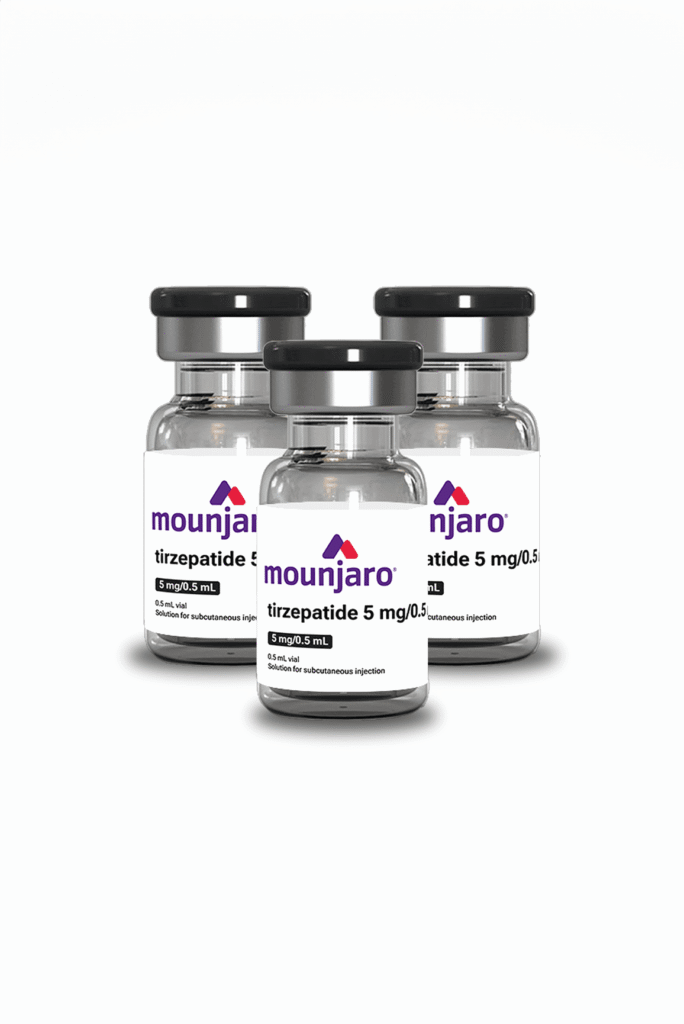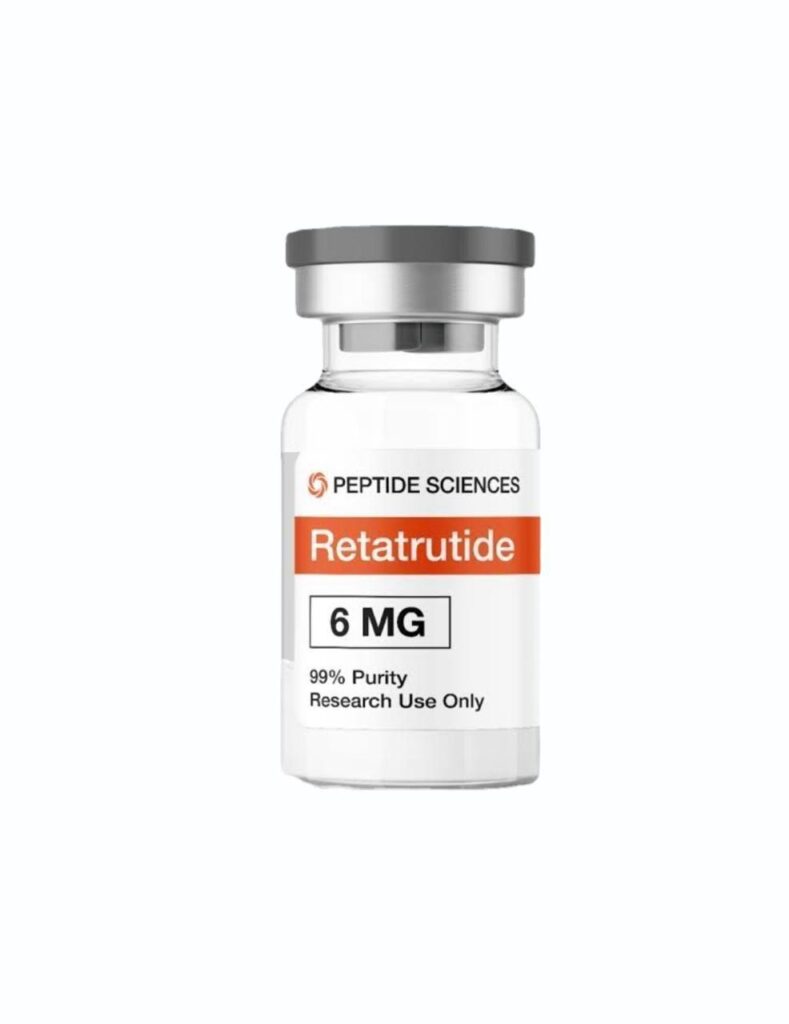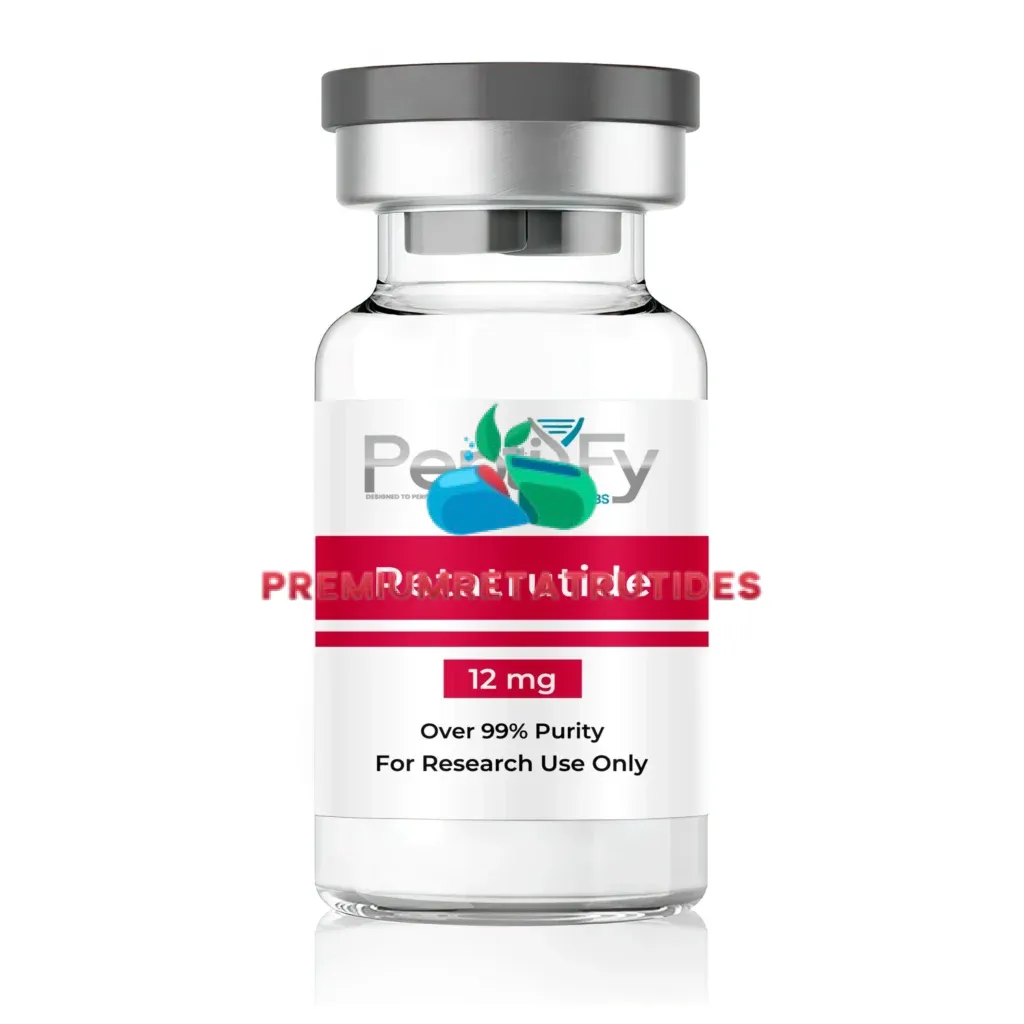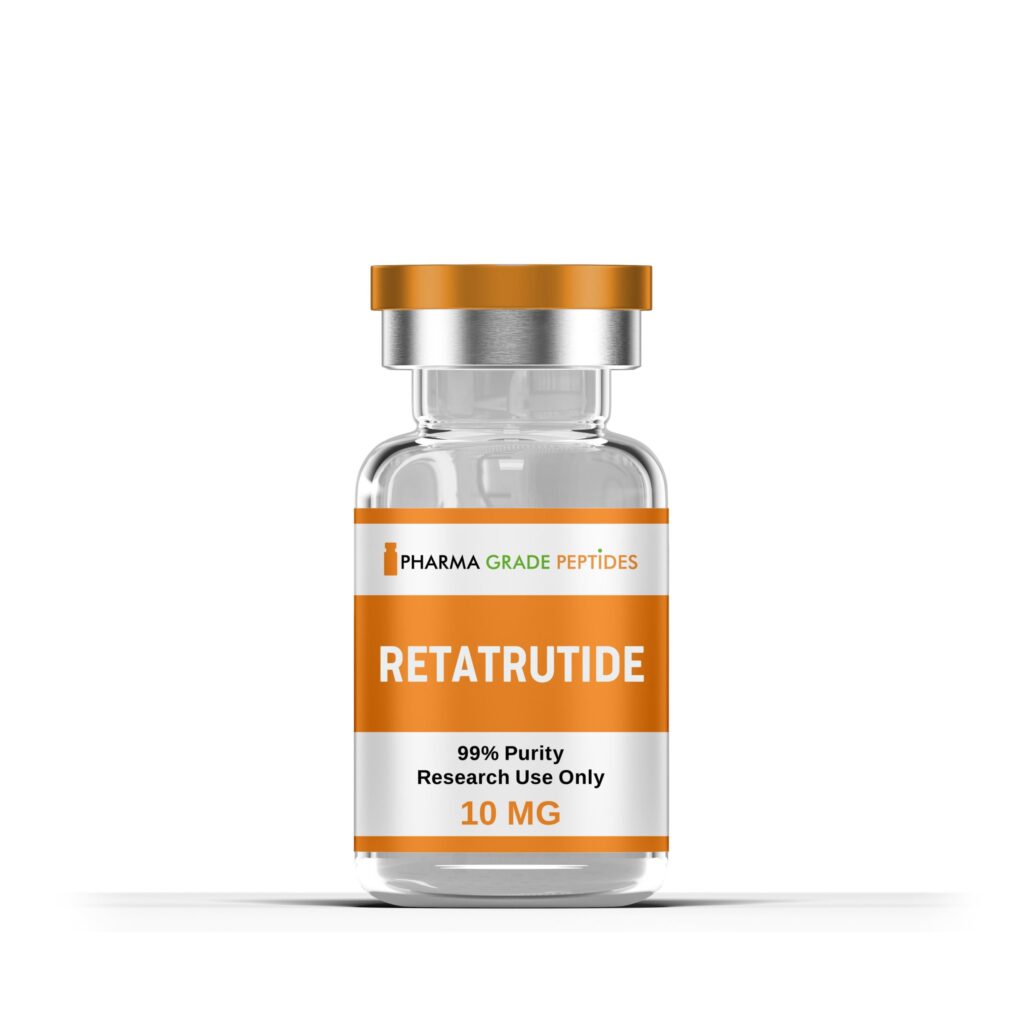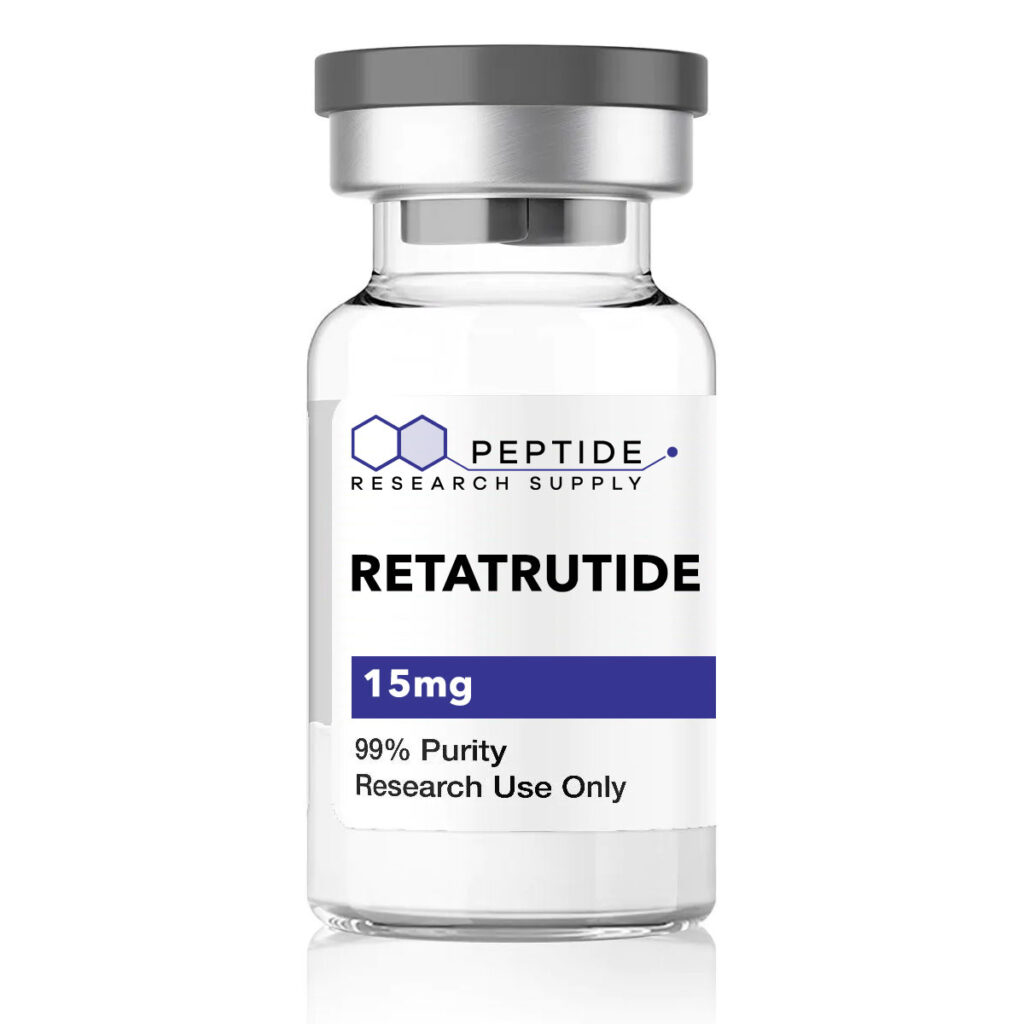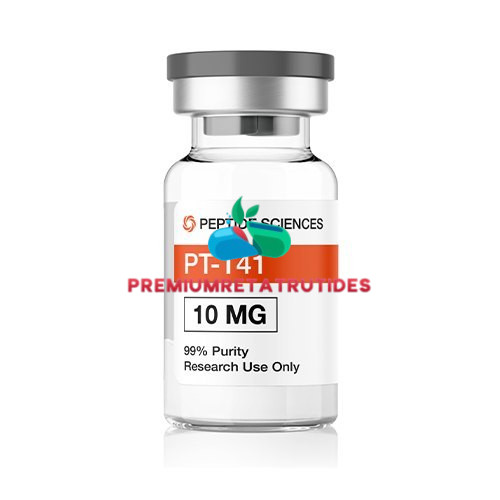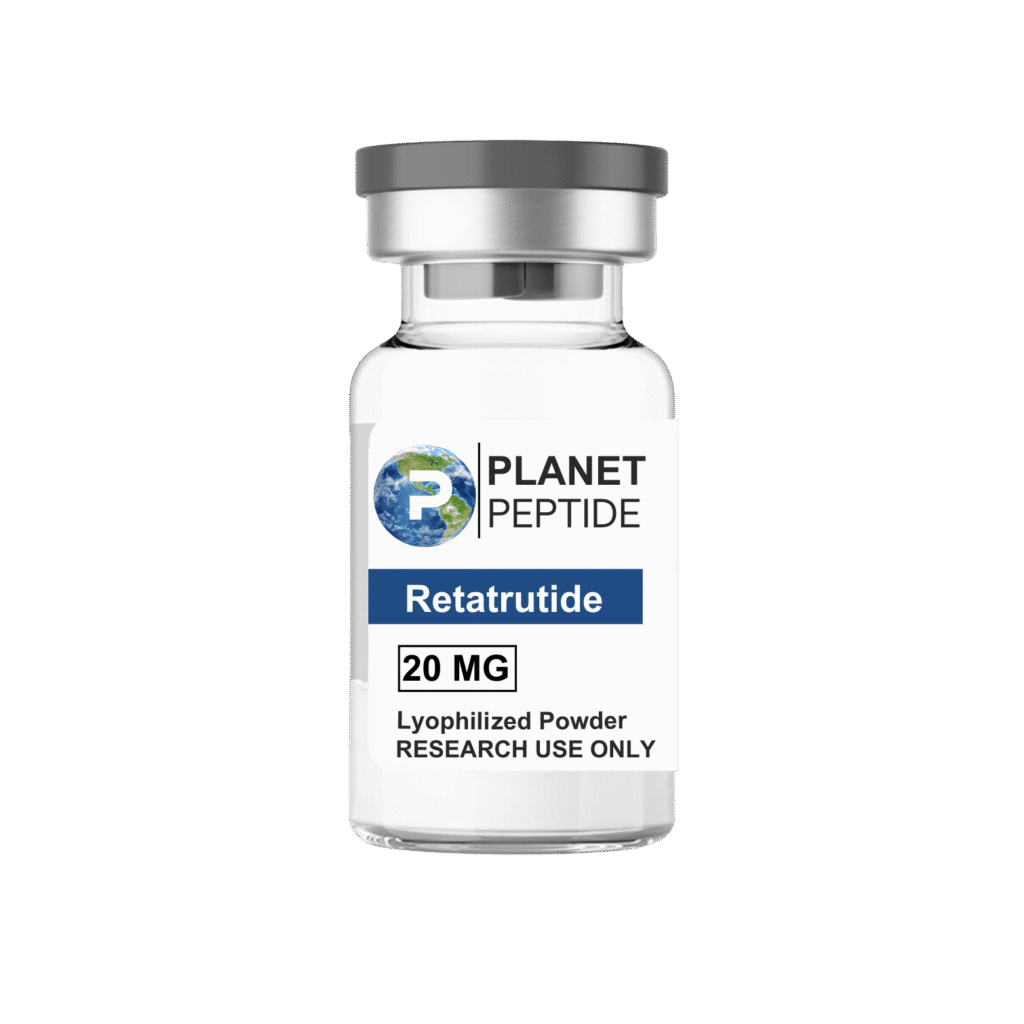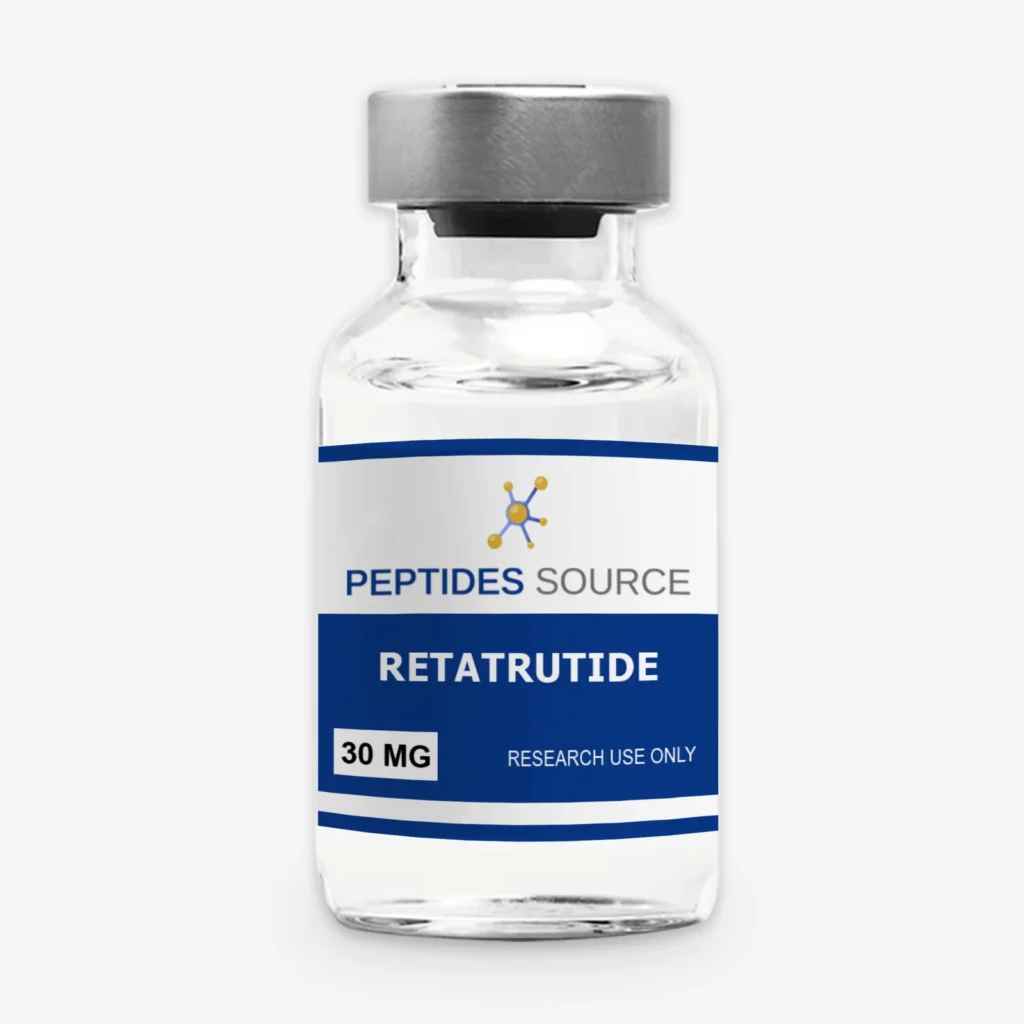

Retatrutide
$26.88 – $92.73Price range: $26.88 through $92.73
United States dollar ($) - USD
-
Pound sterling (£) - GBP
-
Euro (€) - EUR
-
United States dollar ($) - USD
Retatrutide: a promising drug for obesity and diabetes
Retatrutide (LY3437943), developed by Eli Lilly, is an investigational drug that acts as a triple agonist, meaning it activates three key hormone receptors involved in appetite and metabolism:
- Glucose-dependent insulinotropic polypeptide (GIP).
- Glucagon-like peptide 1 (GLP-1).
- Glucagon (GCG).
This novel mechanism of action distinguishes it from existing weight-loss medications like Zepbound (tirzepatide), which targets two receptors (GIP and GLP-1), and Ozempic/Wegovy (semaglutide), which target only GLP-1 receptors.
Potential benefits
- Significant Weight Loss: Phase 2 clinical trials have shown substantial weight reductions, with participants taking the highest dose (12 mg) experiencing an average loss of 24.2% of their starting body weight after 48 weeks.
- Improved Glycemic Control: Retatrutide has demonstrated efficacy in lowering HbA1c levels in people with type 2 diabetes, with some achieving levels below 6.5% or even 5.7%.
- Positive Impact on Cardiometabolic Risk Factors: Clinical trials suggest potential benefits in reducing cardiovascular risk factors and addressing metabolic dysfunction-associated steatotic liver disease (fatty liver disease).
- Once-Weekly Administration: Retatrutide has a half-life of approximately 6 days, allowing for convenient once-weekly injections.
Side effects
The most common side effects are gastrointestinal, including nausea, diarrhea, and vomiting, and are dose-related, often being mild to moderate and manageable with proper dosing adjustments. Some individuals may also experience headaches, fatigue, or temporary increases in heart rate. Serious side effects are rare.
Current status and availability
Retatrutide is still in clinical development and has not yet been approved by the FDA. Eli Lilly expects to release data from late-stage trials in 2025.
Important considerations
- More research, including larger and longer-term trials, is needed to further evaluate the long-term safety and efficacy of retatrutide, including its impact on specific populations and potential risks and benefits for various health conditions.
- Due to its investigational status, accessing retatrutide outside of clinical trials currently involves navigating an unregulated market, raising concerns about product quality and safety.
- It’s crucial to consult with a healthcare provider to determine the most appropriate treatment options for individual needs and health conditions.
In conclusion, retatrutide represents a promising advance in the management of obesity and type 2 diabetes. Its unique triple-agonist mechanism of action and impressive weight loss results in phase 2 trials warrant further investigation and offer hope for a new and effective treatment option.
- Significant Weight Loss: Phase 2 clinical trials have shown substantial weight reductions, with participants taking the highest dose (12 mg) experiencing an average loss of 24.2% of their starting body weight after 48 weeks.
- Improved Glycemic Control: Retatrutide has demonstrated efficacy in lowering HbA1c levels in people with type 2 diabetes, with some achieving levels below 6.5% or even 5.7%.
- Positive Impact on Cardiometabolic Risk Factors: Clinical trials suggest potential benefits in reducing cardiovascular risk factors and addressing metabolic dysfunction-associated steatotic liver disease (fatty liver disease).
- Once-Weekly Administration: Retatrutide has a half-life of approximately 6 days, allowing for convenient once-weekly injections.
We offer complimentary express shipping.
Free returns are available worldwide. If your item is eligible for return, you have 30 days from the date you receive your order to follow this procedure.
See delivery and returns for more information.
Shop The Look


